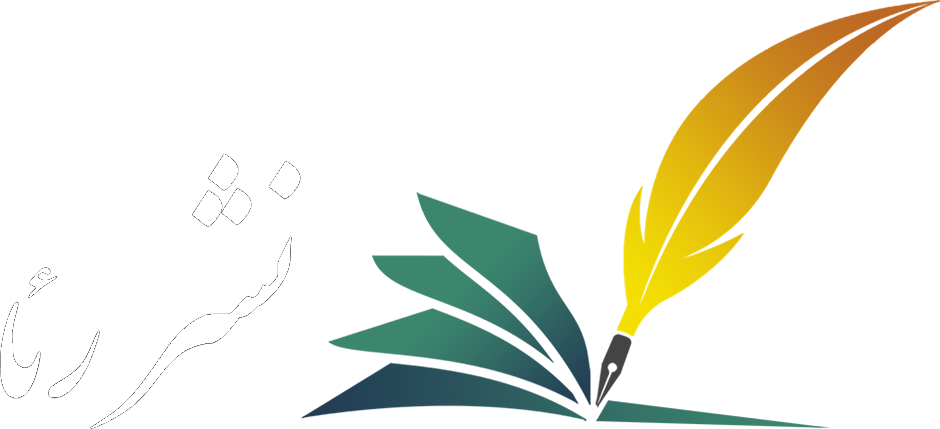بررسی کاربردی شکاف مهارتی در آموزش حسابداری هنرستانها: تطابق محتوای درسی با نیازهای بخشهای دولتی و خصوصی در چارچوب استانداردهای ملی و بینالمللی
چکیده
هدف: با رشد سریع فناوری و تحول استانداردهای حسابداری، آموزشهای ارایهشده در هنرستانها دیگر پاسخگوی نیازهای بازار کار نیستند. این پژوهش به بررسی میزان انطباق برنامه درسی هنرستانهای حسابداری با نیازهای حرفهای میپردازد.
روششناسی پژوهش: پژوهش با رویکرد ترکیبی انجام شد. در بخش کیفی، مصاحبههایی با ۳۰ کارفرما و ۲۰ استاد هنرستان انجام گرفت. در بخش کمی، تحلیل محتوای ۱۵ سرفصل درسی با چارچوب استانداردهای IFRS و IPSAS صورت گرفت.
یافتهها: تنها %40 از مهارتهای موردنیاز بخش خصوصی در محتوای فعلی پوشش داده شدهاند. %68 از سرفصلها فاقد آموزش مهارتهای دیجیتال هستند. همکاری آموزشی-صنعتی میتواند شکاف مهارتی را تا %55 کاهش دهد.
اصالت/ارزش افزوده علمی: بازنگری در سرفصلها، استفاده از فناوری و ایجاد نهادهای مشترک تصمیمگیری، راهکارهایی کلیدی برای کاهش شکاف میان آموزش و نیاز بازار کار در حوزه حسابداری هنرستانی هستند.
کلمات کلیدی:
شکاف مهارتی، استانداردهای بینالمللی، محتوای درسی، آموزش حسابداری، همسویی آموزشیمراجع
- [1] Beik Boshrouyeh, A., Abbaszadeh, M. R., Lari Dashtbayaz, M. &, & Karami, M. (2023). The accounting education gap and professional needs: Examining educational components using grounded theory. Accounting and auditing review, 30(3), 398-431. (In Persian). https://doi.org/10.22059/acctgrev.2023.361926.1008836
- [2] Darvishi., P. (2022). Human resource management measures to reduce the skills and competencies gap in the workforce. Scientific journal of new research approaches in management and accounting, 6(20), 2467-2483. (In Persian). https://majournal.ir/index.php/ma/article/view/1444
- [3] Torabi, Z. (2022). Examining methods of coordinating and adapting the curriculum to the needs of the labor market. Afaq humanities journal, 7(67), 1-12. (In Persian). https://www.magiran.com/p2623473
- [4] Valizadeh Larijani, A., Rahmani, A., & Bakhtiary, M. (2020). Implementation of international financial reporting standards (IFRS) in the accounting curriculum in Iran. Financial accounting knowledge, 7(4), 1–23. (In Persian). https://doi.org/10.30479/jfak.2020.13985.2739
- [5] Kialashaki Hedayat, A., Khorshidi, A., Mohammad Khani, A., & Khosro Babadi, K. (2021). Provide a model of effective skill training to improve training in applied science centers. Journal of jundishapur educational development, 12(2), 596-608. (In Persian). https://www.sid.ir/paper/415799/en
- [6] Eghbali Damirchi, E. (2024). An applied study of the skills gap in accounting education in technical schools: Matching the curriculum content with the needs of the public and private sectors within the framework of national and international standards. The 28th international conference on innovative research in science and technology. Civilica. (In Persian). https://civilica.com/doc/2291117
- [7] Hadizadeh, M., khosravibabadi, A. A., Assareh, A., & Norouzzadeh, R. (2020). Designing a competency-based curriculum in higher VET education (Case study: University of applied sciences). Curriculum planning knowledge & research in educational sciences, 17(39), 1-21. (In Persian). https://sid.ir/paper/402170/en
- [8] Iran Room Online. (2024). The “Skill Ambassadors” project is being implemented in cooperation with the Iranian chamber of commerce and education. https://en.otaghiranonline.ir/
- [9] Becjer, G. S. (1964). Human capital: A theoretical and empirical analysis (Vol. 2). Columbia University Press. https://B2n.ir/xy6928
- [10] Rahmani, A., & Sharifi, S. (2013). Examining the degree of compliance of international financial reporting standards with iranian accounting standards - the case of the banking industry. National accounting conference of Iran (pp. 1-12). SID. (In Persian). https://www.sid.ir/fileserver/sf/5021392h1191.pdf
- [11] Amarlo, M. (2023). Using modern technologies in accounting skills training. Iran’s first national skills conference (pp. 1-10). Civilica. (In Persian). https://civilica.com/doc/2112262/
- [12] Niu, P. (2023). Integrated exploration and practice of international accounting talents cultivation. ICEKIM 2023: proceedings of the 4th international conference on education, knowledge and information management (p. 462). European Alliance for Innovation. http://dx.doi.org/10.4108/eai.26-5-2023.2337323
- [13] Al-Htaybat, K., von Alberti-Alhtaybat, L., & Alhatabat, Z. (2018). Educating digital natives for the future: Accounting educators’ evaluation of the accounting curriculum. Accounting education, 27(4), 333–357. https://doi.org/10.1080/09639284.2018.1437758
- [14] Huber, M., Law, D., & Khallaf, A. (2017). Active learning innovations in introductory financial accounting. In Advances in accounting education: Teaching and curriculum innovations (Vol. 21, pp. 125–167). Emerald Publishing Limited. https://doi.org/10.1108/S1085-462220170000021005
- [15] Edinburgh Napier University. (2023). Bridging the skills gap through graduate apprenticeships. https://innovationhub.napier.ac.uk/ai-advanced-technologies/graduate-apprenticeships
- [16] Hayes, A. (2020). Statement of financial accounting concepts (SFAC) overview. https://www.investopedia.com/terms/s/sfac.asp?utm_source=chatgpt.com
- [17] Bozorg Asl, M. (2002). The process of developing national accounting standards and the difference between national and international standards: An emphasis on the cash flow statement standard. Accountant, 148. (In Persian). https://B2n.ir/yu7536
- [18] Barzegar, E., & Mahdavi, G. (2019). A study of the distributional effects of developing national accounting standards. Auditing knowledge, 19(74), 27-51. (In Persian). https://ensani.ir/file/download/article/1568439962-9414-74-2.pdf
- [19] Gholami Jamkarani, R., & Kaveh, M. H. (2019). The outcomes of implicating public sector accounting standards from the perspective of accountability in the framework of the national accountability checklist (A case study: Governmental hospitals of Fars province). Health accounting, 2(22), 77-95. (In Persian). https://doi.org/10.30476/jha.2020.68095.1208
- [20] Minoui Ghaziani, A., Farivar, M., & Jamal Omidi, A. (2020). The effect of producing educational and electronic content on learning skills training. Skill training, 10(37), 151-172. (In Persian). https://B2n.ir/tm1590
- [21] Ramezani, A. A., & Ramezani, H. (2018). Review of the internship and training course in technical and vocational schools and kardanesh. The fourth provincial scientific research conference “from a teacher’s perspective” (pp. 1-9.). Civilica. (In Persian). https://civilica.com/doc/778796





